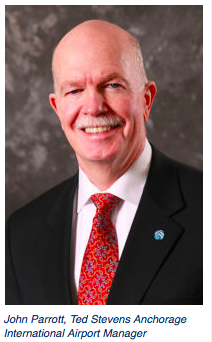Do you get the Must Read Alaska Monday newsletter in your inbox? Sign up at the right side of the home page for news that is written and curated for politicos.
Every few weeks we post some of the Monday newsletter here, and we welcome you to subscribe to it. It’s free. You can unsubscribe anytime.
Here’s a portion-control slice from the Oct. 9, 2017 newsletter:
Good morning Alaska … First big snow in Fairbanks tonight …6.6 magnitude quake in the Rat Islands area last night … Charlie Pierce and Linda Hutchings headed to an Oct. 24 runoff for Kenai Borough mayor … But first …
WHY, HARVEY!!!
Where to start with the Democrats and their little Harvey Weinstein problem?
Just a donor? Only an entertainment executive? And why didn’t Saturday Night Live even touch the subject? (SNL creator Lorne Michaels said they didn’t go after Weinstein because “It’s a New York thing,” he told the Daily Mail.)
It’s a Hollywood thing, too: A 2015 survey of Oscar acceptance speeches show that Weinstein was thanked more frequently than God.
As for the Democrats he donated to — including Hillary Clinton — as they re-gift his money to Emily’s List, isn’t that the same as keeping it?
The Dems can’t have it both ways. (They will always try.)
NATION
20-WEEK ABORTION BAN
The U.S. is one of just seven countries that allow abortions after 20 weeks, which is the midpoint of a child’s development in the womb. Currently, states can decide to ban abortions after a certain point in the pregnancy, usually 20 to 24 weeks. H.R. 36 would prevent states from approving abortions after 20 weeks. It is also called the “Pain-Capable Unborn Child Protection Act.” Exceptions are for rape, incest, life of mother. It seems to be an improvement.
After all, which senator wants unborn children to feel the pain of their abortion?
WAIT…WHAT? BIRTH CONTROL IS ONLY $9 A MONTH?
On Friday, the Trump administration cleared the way for all companies — profit or nonprofit — to stop paying for birth control through the insurance plans they offer.
The question the feminists are asking: Why are you taking away our right to birth control?
The question the rest of us ask is: When did it become an entitlement?
At Walmart, birth control costs $9 a month, the cost of two pumpkin spice lattes.
At Amazon you can get over a hundred condoms for less than $15. (We checked.)
Cheap birth control options to forward to your friends of childbearing years.
HAPPY INDIGENOUS TO THE PLANET DAY
Columbus was bad to the bone, as explorer-warriors were, but there have been plenty who were worse. Happy Historical Accuracy Day.
Must Read Alaska’s recommended reading is on slavery in pre-contact Americas by historian Tony Seybert.
STATE
BETTING OUR SUBARU ON THIS …

… That Tara Sweeney is named the head of the Bureau of Indian Affairs during the AFN annual convention, which is Oct. 19-21 at the Dena’ina Center in Anchorage.
Tara Sweeney is the Executive Vice President of External Affairs for Arctic Slope Regional Corporation, where she has been responsible for all facets of the corporation’s media and government relations and communications.
ASRC is the largest locally owned and operated business in Alaska, with revenues in excess of $2 billion and more than 10,000 employees worldwide, according to its website.
Sweeney lived most of her life in rural Alaska, graduating from Barrow High School in 1991. She attended Cornell University in Ithaca, New York and graduated with a Bachelor of Science degree in Industrial and Labor Relations. She and her husband have two children. Until recently, Kevin Sweeney was state director for Sen. Lisa Murkowski. He had served on and off the senator’s staff for many years.
Secretary of the Interior Ryan Zinke will speak by teleconference to AFN on Oct. 19 during the morning session. This might be the time at AFN to pay attention: Alaska has not had one of our own heading the BIA since Morris Thompson, 1973-76 (hat tip Jmark for the correction).
WHO HEADS GOVERNOR’S DC OFFICE?
Craig Fleener, who was once Gov. Bill Walker’s choice to replace Kip Knudson as the director of the DC office of the Governor, is now simply known in the cabinet as “Arctic Policy” on the governor’s cabinet page.
That is still a big portfolio, but it is not as big as the one he had last year.
Fleener has bounced around jobs in the administration since giving up his hopes of being Gov. Walker’s running mate back in September of 2014. The reward for allowing the Democrats to remove him from the ticket and replace him with Byron Mallott? A job for four years, with no deliverables, no questions asked. Word is that he is still in D.C., but the Governor’s webpage says he lives in Anchorage.
WHO HEADS GOVERNOR’S CAMPAIGN? HIS AIDE JOHN-HENRY, OF COURSE
The governor’s office and Ship Creek Group are now fully integrated, as his aide John-Henry Heckendorn has a toehold in the official capacity, campaign capacity, and with the group that is managing the Walker-Mallott campaign. It all looks perfectly legal, the kind of arrangement that threads the ethics needle. We report.
SHIP CREEK GROUP GEARING UP CAMPAIGN FOR GENDER-FLUID BATHROOMS
Speaking of Ship Creek Group and the governor, the group has opened up a political action committee to push for gender-neutral bathrooms in Anchorage. That question — can anyone use any bathroom or locker room — will be on the April 3 municipal ballot.
The chair of the group “Fair Anchorage No On Prop 1” (FANOP-1) is Joshua Decker of the ACLU, and the treasurer is Paula DeLaiarro of Ship Creek Group, who is also treasurer for Walker-Mallott.
Others on the FANOP-1 bathroom brigade are deputy treasurers Laura Herman, Rashika Rakibullah, Casey Reynolds, and Andrea Zekis — all of ACLU, Grant Johnson of Yuit Communications, Samuel Ohana, a transgender activist, and Michael Burke, who is likely an Anchorage Episocopalian priest.
The group got early money from LGBTQ advocates Freedom for All Americans (nearly $27,000 including staff time and the fees for Blue State Digital, a Democrat-focused campaign software); former Anchorage School Superintendent Carol Comeau ($500); Planned Parenthood of Northwest & Hawaii ($1,200 staff and phone bank); National Center for Transgender Equality ($2,000); Human Rights Campaign ($2,000 in services); and the ACLU (over $17,000 that included money, lots of pizza, and other food). Who’d we miss on the FANOP-1 bathroom brigade?
NORTH KOREA FILLET?
The evidence is strong that North Korean forced labor is processing Alaska-caught seafood. Will lawmakers take on that problem or is it just too nuclear? We looked closer.
PEBBLE’S NEW PLAN IS…
Giving the EPA exactly what they asked for … we’ll see how that goes for Pebble. Hope for the best but don’t hold your breath.
FORMER DISPATCH EDITOR NOW QUITE THE TWEETER
Twitter is just too easy for former ADN Editor Pat Dougherty, who is now blaming Trump for the Las Vegas massacre and approving of Shannyn Moore’s sick rants. These kind of tweets ought to make all current ADN reporters just cringe:


LOCAL
ANCHOR-CRIME REPORT
If you were not able to make the “crime-is-outta-control” meeting at Loussac Library on Saturday, you missed some lively public comments. Reps. Charisse Millett, Cathy Tilton and Geran Tarr attended as the Anchorage Assembly spent four hours listening to testimony from fed-up Anchorage residents. Gubernatorial hopeful Scott Hawkins was in the audience.
The Assembly will consider two resolutions on Tuesday: One in support of SB54, which would revise SB 91. The other would support the repeal of SB91, and encourage a new bill to heighten the penalties for murder, sex offenses, and expand the rights of victims.
Weigh in by emailing all Assembly members at [email protected]. But first, come up to speed by reviewing the agenda for the Oct. 10 meeting.
LOCAL ELECTION RESULTS
It looks like it’s Brower vs. Brower in Barrow, as the mayor of the North Slope Borough may be decided in a runoff. Back in June, voters went to the polls to decide on a replacement for Charlotte Brower, who was ousted by recall in April. Now it’s Harry vs. Frederick Brower.
Other results from around the state.
ELECTION WE MISSED
Skagway’s Dan Henry, in spite of a conviction for evading federal taxes, is back on the Skagway Assembly, winning by five votes. Henry had served for 19 years on the Assembly. Also, two-term mayor Mark Schaefer was beat by Monica Carlson, who is the director of tour operations for Skagway Street Car Co.
WILLIAM WEATHERBY IS BACK
Recent filings of letters of intent include Republican Sara Rasmussen for District 22 (now occupied by stealth Democrat Jason Grenn), and William Weatherby, who challenged Bryce Edgmon two years ago and appears to be ready to do so again. Edgmon won District 37 in 2016 with an 18 point advantage, 59 by 41 percent, but Weatherby ran a heck of a campaign and impressed many. Including this writer.
POLL IN THE FIELD
A pollster was calling this week asking opinions of about Jim Minnery, Jerry Prevo, Mayor Dan Sullivan, ACLU, Alaska Family Council, Mayor Ethan Berkowitz, former Sen. Mark Begich and the Anchorage municipal bathroom initiative. It was a long questionnaire.
MAYOR OF HOMER COMMENDS SEATON
Here’s what the mayor of Homer plans to sign tonight. It speaks for itself:















